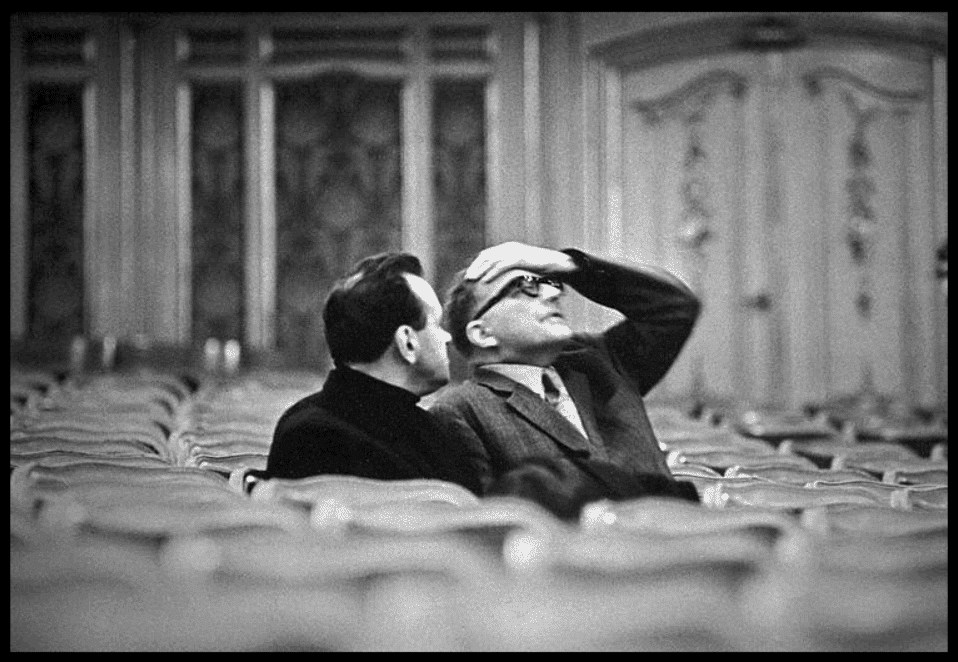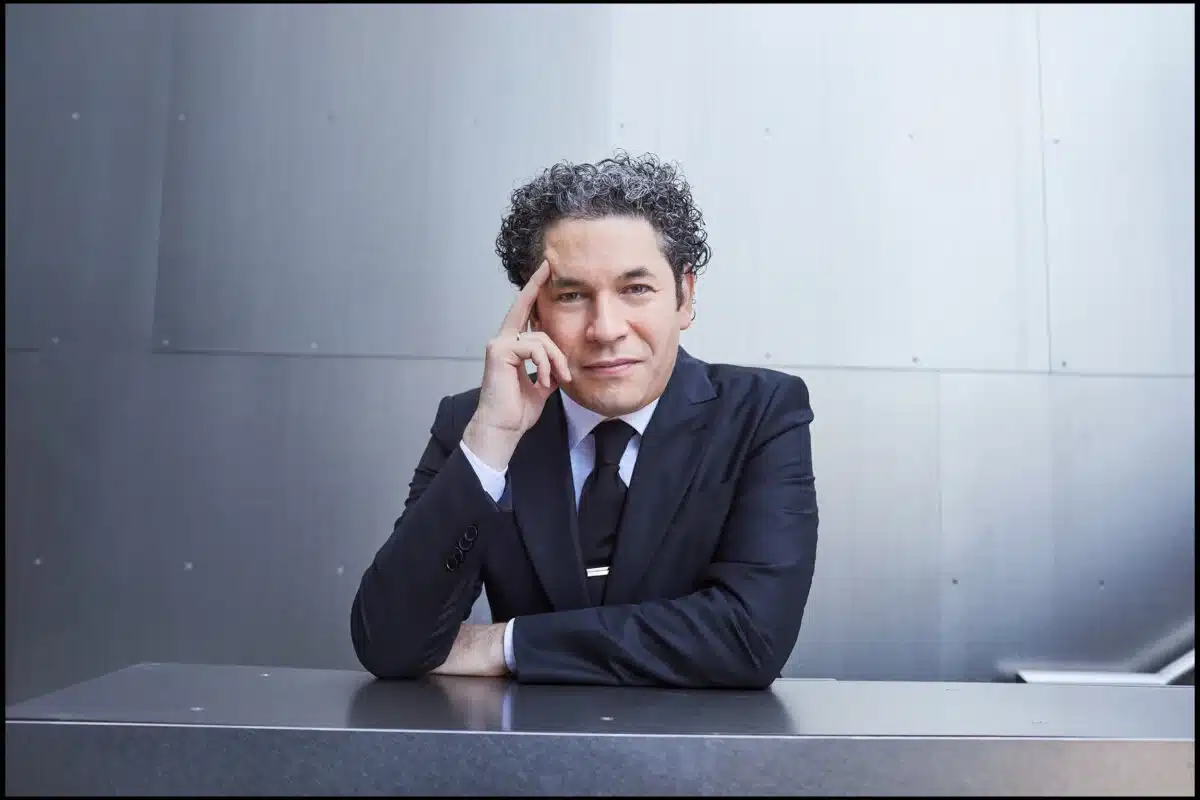Is this the end of one-on-one music teaching?
mainLondon’s annual Battle of Ideas is tackling the crisis in music teaching in the aftermath of multiple English sex scandals and police investigations. Can a lone musician be trusted to teach a child unobserved? That’s the burning question.
For speakers and booking click here.
For a dissenting view of the premise of the debate, read Ian Pace here.






“For speakers and booking click here.” – your link “here” is broken Norman, it goes to your earlier Kremer article.
tks
This is of course very interesting, but is the photo you’ve used really necessary?
Whether or not it is “necessary” can be read two ways; was it “necessary” to include a photograph at all here or was it “necessary” to publish that particular one. As to the former, that is a matter of individual personal opinion and can be no more than that; as to the latter, the arrest, charging, trial and conviction of Mr Brewer and the arrest and charging of Mr Layfield are facts and, as each once occupied a senior position at the school concerned, publishing a photograph of that school in this context therefore seems to me to be perfectly reasonable, even though it is known to be by no means the only specialist music education institution whose name has come under suspicion on not dissimilar grounds.
‘the arrest and charging of Mr Layfield’ – I hadn’t heard that he had been charged?
Sincere apologies; I meant to write “arrest on charges of”.
It’s very difficult… We need to protect ourselves NOT from molesting students (I HATE children! Forget the myths about gay men, I HATE CHILDREN!!!!!) but from accusations from former students perhaps 20-30 years later. (In the Albany NY area we had a man pursuing a complaint of abuse >70 years later against nuns who may never have existed. Posthumously, his brother is pursuing the case. We have allegations of priest pedophilia far beyond any reasonable statute of limitations.) The truth of any such allegations does not matter. in no other crime are you “guilty” the second the accusations are raised. I had a dear priest friend who was devastated by allegations by a mentally disturbed man he had never met. The onus was on the priest to prove he never knew/met the man, could never have been alone with him. Any other crime, you are “innocent until proven guilty.”
I have shaken my head for 6 years at the Safe Church program the Director of Music at our Anglican Cathedral; of All Saints in Upstate NY has established. There are almost risible contortions to make sure one is never alone with a chorister. But it is, alas, so very necessary, again not to prevent you from molesting/abusing a boy chorister but to protect you from an allegation years later. There are 4-5 adults, parents etc., in the choir room, even with the choir when it rehearses on the high altar, at all times to vouch for you.
My husband, Tim, is on the faculty of a major US conservatory, teaches voice privately. He has an opposite sex accompanist & a “page turner,” as well as an open door policy, welcoming other students to “observe” any lesson, all to protect himself.
I don’t question such abuse happens. But it’s also the fad accusation. It’s the fastest way to destroy someone. You are never the same after such allegations as happened to an acquaintance who was even shunned by his congregation despite being fully acquitted of all charges–he was never alone with the child in question–she just developed a “crush” and elaborate fantasy about him & in the States especially, kids have difficulty today, we did not, in separating fantasy from reality. Yes, we need to investigate all such claims but we also need to protect the accused so he is, indeed, innocent UNLESS proven guilty. And when we die, let our sins die with us. No more pursuing ANY such allegations. For the deceased has been immediately judged by the Ultimate Judge and, if he, indeed, committed such offenses, punished as humankind could not punish him, I also firmly believe in a reasonable statute of limitations. After 5 years, let go & let GOD. I know that’s anathema to the US’ “SNAPies,” (Survivors of Abuse by Priests) but, other than murder, no other crime can be brought to trial after a certain period of time.
You make some interesting points, but your claim that you HATE CHILDREN is disturbing to say the least and may affect the way some people read your comment.
Leaving the dealing with such matters to divine judgement is not likely to result in any meaningful reform, either.
I was never abused by my music teachers or clergy, only psychologically exploited by a mental health professional; that was seriously damaging! Point: Protection is a myth. One can only teach children and adolescents to recognize warning signs, escape, and report.
On the flip side, today instructors must provide a safe environment for liability reasons as abuse in reverse, (false accusation) is another evil reality.
Apparently, in this school’s situation, awareness of abuse and its safeguards were inadequate.
Yes, they can be trusted. I teach 1:1, and I also have lessons from my singing teacher on a 1:1 basis. Just a few, although they seem a lot, who spoil for the others, and then policitally correct asking for chaparones! How am I going to pay for chaperones when my students already stuggle to pay for me – and I’m not that expensive? You can’t use Chets as an example to the world. A lot of people have been hurt in the past, yes, but SOME, not all, are on the band-wagon of digging up the past for compensation of a vast amount is in the offing too – be it musical institutions or any institution. Seems to me it’s the latter that is the problem, but I stand to be corrected. Jimmy Saville or all these other celebrities being held to account, weren’t priests or music teacher, or even gay. Most abuse happens in families, not in schools or a churches! You only have to look at the dreadful reports we have had from three children neglected by their parents, one mummified in a cot for two years, one starved to death and a third. Just beggars belief.
Una, you say ‘A lot of people have been hurt in the past, yes, but SOME, not all, are on the band-wagon of digging up the past for compensation of a vast amount is in the offing too – be it musical institutions or any institution. Seems to me it’s the latter that is the problem, but I stand to be corrected.’
Do you know quite how hard it is for people to talk about their experiences, let alone bring them to court (especially after seeing what happened with Frances Andrade)? Yes, false accusations do occasionally happen, but to portray this as a ‘band-wagon of digging up the past for compensation of a vast amount’ (especially considering there have been no civil lawsuits so far, and personally I’m not sure that would necessarily help things that much, especially if they lead to pay-outs with gagging clauses) is really quite contemptuous.
‘Most abuse happens in families, not in schools or a churches!’
Most studies of abuse which I have read (quite a few now) concentrate upon abuse in the home; institutional abuse is still relatively little-researched. There is plenty of evidence of very widespread abuse in churches, and amongst celebrities in regular contact with children. And there are forms of abuse which are not sexual but can be equally damaging. It would be more accurate to say ‘We know more at present about abuse in the family, much less about how prevalent this has been or continues to be in schools, churches, and other institutions’.
As far as I’m aware, the concept of one-on-one teaching as default pedagogical mode is largely an Anglo-Saxon phenomenon. The Paris Conservatoire (to take a well-known Continental instance) always used to concentrate upon group lessons rather than on one-on-one lessons, and to the best of my knowledge it does so still.
I don’t know if the Paris Conservatoire still does this – it may well – but in any case it is obvious to me that there is enormous potential for mutual benefit in having more than one student in a lesson at a time. I am not here thinking so much of the kind of ‘group’ teaching that would be used in Paris for solfege etc – although there is merit in that – but in the context of the recent revelations of life-damaging abuse perpetrated in the privacy of one-to-one teaching, we should surely look for different ways of organising teaching programmes in specialist music schools and conservatoires.
What’s wrong with having one student receiving one-to-one teaching while the next student sits in to observe. To my knowledge this method has already been used by some teachers, and both teachers and students have found it to be instructive at the very least and enlightening at best.
I also know private teachers who encourage parents as well as the ‘next’ student to sit in on lessons, with the result that something is learned by everyone.
It isn’t good enough to say that most teachers are decent non-abusive people – which they are – there should be action now in re-organising teaching methods so that desperate, life-damaging tragedies cannot occur because of the privacy of the teaching studio.
In an institutional music teaching setting, a simple solution would be lessons-during-business-hours-only and a large, undraped window on the teacher’s studio door. No?
In conservatory, everyone knew who behaved and who didn’t. It would be extremely difficult to gain any credence on a false accusation of an innocent man. Extremely.
I’m a private teacher, not with any institution, and I like it that way. I’ve had very, very promising students and never need an institution to help us bear fruit together. May all this fear be pushed aside in favor of most-needed Faith. However–may the System be put on notice: we’re still here, and we need neither you, nor curricula, nor paid overseers (our peers, friends, truly our brethren serve us all just fine in that capacity) to not only function, but fly to the highest peaks.